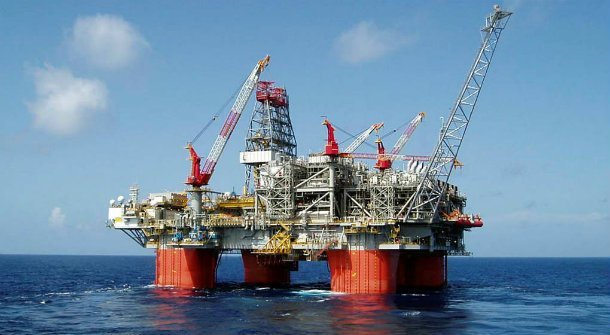
Oil hovered slightly below 2019 peaks on Friday, propped up by ongoing supply cuts led by producer club OPEC and by U.S. sanctions on Iran and Venezuela.
Concerns that an economic slowdown might soon impact fuel consumption are preventing crude prices from rising further, analysts said.
Brent crude oil futures were at 67.90 dollars per barrel at 0617 GMT, 4 cents above their last close. Brent hit a four-month high of 68.69 dollars per barrel the day before.
U.S. West Texas Intermediate (WTI) futures were at 59.96 dollars per barrel, down 2 cents from their last settlement. WTI also marked a 2019 peak the previous day, at 60.39 dollars.
“Global economic growth still remains a concern,” said Sukrit Vijayakar, director of energy consultancy Trifecta.
Economic growth has slowed across Asia, Europe and North America, potentially denting fuel consumption.
Still, oil prices this year have been propped up by supply cuts by the Organization of the Petroleum Exporting Countries (OPEC) and non-affiliated allies such as Russia.
Investment bank RBC Capital Markets said oil was “still below the fiscal breakeven level in a number of OPEC countries”, meaning that many producers have an interest in further propping up the market.
“We believe that OPEC is likely to extend the deal for the duration of 2019 when they next assemble in Vienna in June,” RBC said.
RBC said Russia was only a reluctant partner in the supply cuts, but would “ultimately opt to preserve the arrangement and retain a leadership role of a 21-nation group that accounts for around 45 per cent of global oil output”.
Beyond voluntary supply cuts, oil prices have been boosted by U.S. sanctions against OPEC-members Iran and Venezuela.
Iranian crude oil shipments have averaged just over 1 million bpd in March, down from 1.3 million bpd in February and a 2018 peak of at least 2.5 million bpd in April.
“The average 1 million bpd in Iranian exports since November seems likely to fall further,” U.S. investment bank Jefferies said on Friday.
“Only four of the eight exempted countries have lifted crude since then and the other four are likely to see a reduction in their exemptions,” it added.
Venezuelan oil production has also dwindled amid U.S. sanctions and an internal political and economic crisis, plunging from a high of more than 3 million bpd at the start of the century to just 1 million bpd.
Somewhat offsetting disruptions from sanctions and cuts has been a jump of more than 2 million bpd in U.S. crude oil production since early 2018 to a record 12.1 million bpd, making the United States the world’s biggest producer ahead of Russia and Saudi Arabia.
This has resulted in increasing exports, which have doubled over the past year to more than 3 million bpd.
The International Energy Agency (IEA) estimated that the United States would become a net crude oil exporter by 2021.
(Reuters/NAN)
You may be interested

Arsenal Equal Chelsea’s London Derby Feat After 5-1 Win Vs Palace
Webby - December 21, 2024Arsenal equaled Chelsea’s London derby achievement following their 5-1 win against Crystal Palace in Saturday’s Premier League game at Selhurst…

Haaland Backs Guardiola To Turn Man City’s Poor Form Around
Webby - December 21, 2024Erling Haaland had said he and his Manchester City teammates are still backing manager Pep Guardiola to turn the team’s…

PSG To Reignite Interest In Osimhen
Webby - December 21, 2024Paris Saint-Germain have contacted Napoli to discuss signing Victor Osimhen in January, according to reports in France.It is reported that…





















![American Pastor, David Wilson Seen Eating The Box Of Woman Who Isn’t His Wife [Video]](https://onlinenigeria.com/wp-content/uploads/2019/10/american-pastor-david-wilson-seen-eating-the-box-of-woman-who-isnt-his-wife-video-150x150.jpg)









